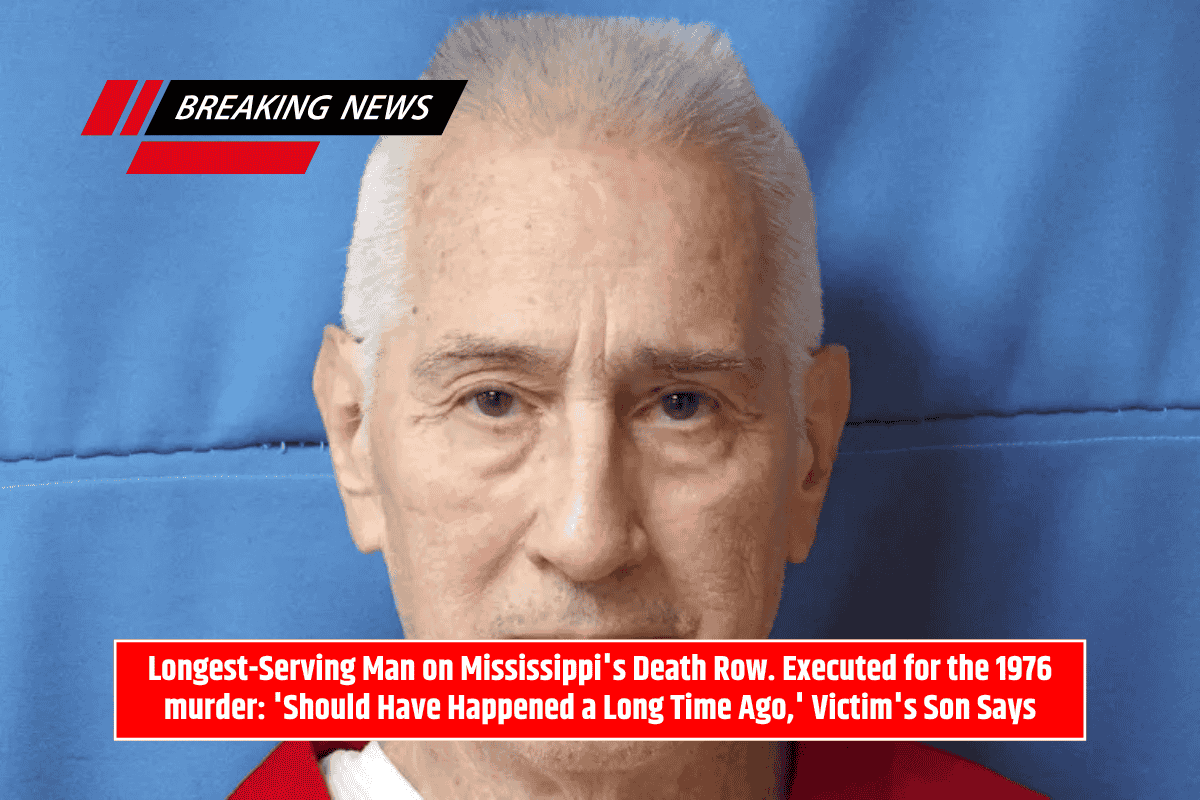Richard Jordan, the longest-serving inmate on Mississippi’s death row, was executed by lethal injection on June 25, 2025, at the Mississippi State Penitentiary.
The 79-year-old Vietnam War veteran had spent almost five decades behind bars for the 1976 kidnapping and murder of 35-year-old Edwina Marter. Jordan’s execution followed years of appeals, but his legal challenges were ultimately denied, leading to his death.
The Crime and Conviction
In January 1976, Jordan executed a violent ransom scheme in Gulfport, Mississippi. Posing as an electrical repairman, he kidnapped Edwina Marter, a mother of two, from her home.
He took her to a forest, shot and killed her, and then falsely claimed she was unharmed in an attempt to extort a ransom of $25,000 from her family. Jordan was arrested and convicted of the crime, receiving the death penalty multiple times.
Jordan’s execution marks the end of a long and contentious legal battle, including claims from other death row inmates about the inhumanity of Mississippi’s execution methods. His case attracted attention due to his status as the longest-serving death row inmate in the state and his age, being 79 at the time of his execution.
Last Words and Final Moments
Prior to his execution, Jordan thanked his legal team and wife, expressing gratitude for what he described as a humane process. He apologized to the victim’s family, saying, “I want to apologize to the victim’s family,” before adding in his final words, “I will see you on the other side, all of you.”
Jordan shared a final meal with his family before the execution, and the Mississippi Department of Corrections confirmed that his execution procedures began at 6 p.m. local time. He was pronounced dead 16 minutes later.
The Impact on Edwina Marter’s Family
The execution was a moment of closure for the Marter family, but the pain of losing Edwina, who was a mother, sister, and friend, remains. Edwina’s sons, Eric and his brother, were 11 and 8 years old when their mother was murdered.
Eric, now 59, shared his feelings in an interview before the execution, stating, “It should have happened a long time ago.” He emphasized that he was not interested in giving Jordan “the benefit of the doubt,” referencing the long wait for justice.
In a statement following Jordan’s execution, a family spokesperson conveyed the grief of Edwina’s family: “Nothing will bring back our mom, sister and our friend.
Nothing can ever change what Jordan took from us 49 years ago.” The family expressed anger at the delay in Jordan’s execution, with the spokesperson questioning why Jordan was allowed to live in prison, while Edwina’s family never had that choice.
They also noted the emotional toll the long legal battle had on them, stating that Jordan’s eventual death, although welcomed, couldn’t undo the decades of suffering they endured.
Richard Jordan’s execution after nearly five decades on death row brings an end to one of Mississippi’s longest-running legal battles. While it provides some closure to Edwina Marter’s family, it also highlights the complex and emotional nature of the death penalty, particularly in cases involving years of legal challenges.
For the Marter family, the pain of their loss remains, and Jordan’s execution, while finally delivering justice, cannot erase the scars left by the violent crime that took their loved one away.
